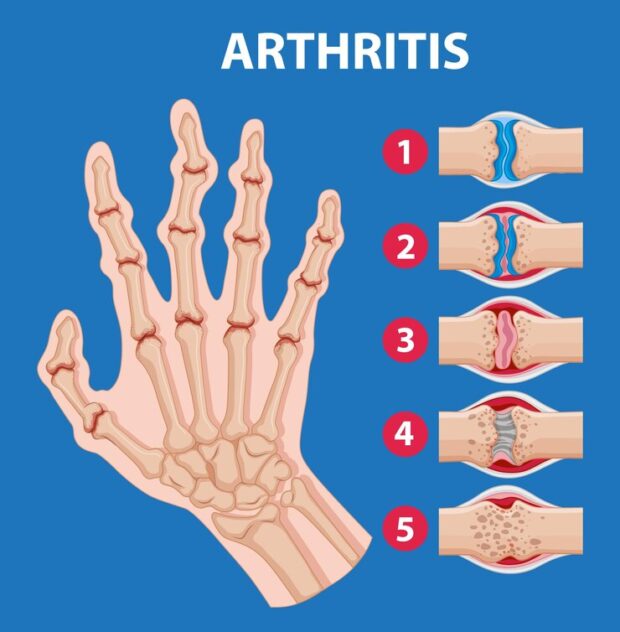Living with arthritis can feel like navigating a never-ending journey of challenges. Whether you’re newly diagnosed or have been dealing with this condition for years, it can be overwhelming to manage its complexities. You’re not alone in feeling this way—I’ve been there too. But here’s the thing: arthritis doesn’t have to define your life. By making thoughtful lifestyle changes, you can significantly improve your quality of life.
In this blog, I’ll delve into the ways you can navigate arthritis, unravel its complexities, and embark on the journey toward living well. Let’s break it down together, step by step.
Understanding Arthritis: What It Is and What It Isn’t

Before diving into lifestyle changes, it’s crucial to understand what arthritis actually is. Too often, we think of it as a singular condition, but in reality, arthritis is an umbrella term for over 100 types of joint-related diseases. These include:
- Osteoarthritis (OA): Often called the “wear and tear” arthritis, OA results from the breakdown of cartilage.
- Rheumatoid Arthritis (RA): An autoimmune disease where the immune system attacks the joints.
- Psoriatic Arthritis: Linked to psoriasis, this form combines skin and joint symptoms.
Understanding the type of arthritis you have is critical because management strategies can vary. Working closely with a medical professional, like a specialist at a rheumatology clinic in Singapore, ensures that your treatment plan is tailored to your specific needs.
Lifestyle Changes: Your Key to Living Well
Arthritis doesn’t have a one-size-fits-all solution. However, there are lifestyle changes that universally help reduce symptoms, improve mobility, and enhance overall well-being.
1. Embrace Movement—Your Body Needs It
It might sound counterintuitive, but movement is one of the best things you can do for arthritis. I know the idea of exercising with stiff, painful joints can feel daunting, but hear me out. Movement strengthens muscles, reduces stiffness, and even decreases pain over time. The key is choosing activities that are gentle yet effective.
Exercise Tips:
- Start small: If a long workout feels impossible, begin with 5-10 minutes of stretching or walking.
- Focus on low-impact activities: Swimming, water aerobics, yoga, and cycling are fantastic options.
- Incorporate strength training: Building muscle around your joints can reduce strain on them.
And don’t forget to listen to your body. If an activity causes more pain, modify it or try something else. Consistency matters more than intensity.
2. Food as Medicine: Anti-Inflammatory Diets

I’ve found that what you put on your plate has a profound impact on how your joints feel. Arthritis is driven by inflammation, so adopting an anti-inflammatory diet can help you manage symptoms. Think of food as fuel for healing.
Foods to Include:
- Omega-3-rich options: Fatty fish like salmon and mackerel are excellent choices.
- Colorful fruits and vegetables: Think berries, spinach, kale, and sweet potatoes.
- Spices with benefits: Turmeric and ginger are known for their anti-inflammatory properties.
- Healthy fats: Avocado, olive oil, and nuts are great additions.
Foods to Avoid:
- Processed snacks: Chips, cookies, and fast food can worsen inflammation.
- Sugary beverages: Swap soda for water infused with lemon or cucumber.
- Excessive red meat: Go for lean proteins like chicken or plant-based alternatives.
And while you’re at it, don’t underestimate hydration. Drinking enough water keeps your joints lubricated and supports overall health.
3. Stress Management: The Mind-Body Connection
Navigating arthritis isn’t just about managing physical symptoms—it’s also about taking care of your mental health. Stress can exacerbate inflammation and make symptoms worse. That’s why I’ve made stress management a non-negotiable part of my routine.
Ways to Reduce Stress:
- Practice mindfulness: Guided meditation apps can help you relax and focus.
- Dive into hobbies: Whether it’s painting, knitting, or gardening, find activities that bring you joy.
- Breathe deeply: Deep breathing exercises are a simple yet effective way to calm your mind.
Stress management doesn’t have to be complicated. Even small practices, like journaling or taking a walk in nature, can make a big difference.
4. Protecting Your Joints: Daily Habits Matter
Arthritis-friendly habits can make everyday tasks easier and reduce wear and tear on your joints. I’ve learned to adjust the way I move and work to protect my body.
Practical Tips:
- Use assistive devices, such as jar openers or ergonomic kitchen tools.
- Avoid gripping items too tightly; opt for lightweight options instead.
- Alternate between sitting and standing during long periods of work.
- Push heavy items instead of pulling them to reduce strain on your joints.
These small adjustments might seem trivial, but they add up to significant relief over time.
5. Heat and Cold Therapy: Simple Yet Effective

When arthritis pain flares up, I turn to heat and cold therapy. It’s a simple, drug-free way to find relief.
When to Use Heat:
- To relax tight muscles and improve blood flow
- Ideal before exercise or in the morning
When to Use Cold:
- To reduce swelling and numb pain
- Best after physical activity or during a flare-up
Keep a heating pad and ice pack handy—you’ll be surprised at how much they can help.
Navigating Emotional Challenges
Arthritis isn’t just a physical condition; it’s an emotional journey too. It’s natural to feel frustrated, anxious, or even isolated at times. But you don’t have to go through it alone.
Tips for Emotional Well-Being:
- Join a support group: Connecting with others who understand your struggles can be incredibly validating.
- Talk to a therapist: Counseling can help you process the emotional toll of chronic pain.
- Celebrate progress: Even small victories—like taking fewer painkillers or walking a little farther—deserve recognition.
Allow yourself grace on tough days. You’re doing the best you can, and that’s enough.
Why Professional Support Matters
While lifestyle changes are powerful, they’re most effective when paired with medical care. Rheumatologists are specialists who can help you navigate the complexities of arthritis.
A rheumatologist can offer:
- Personalized treatment plans
- Medications to control inflammation
- Insights into the latest research and therapies
Partnering with a specialist ensures that you’re not facing arthritis alone.
Living Well with Arthritis Is Possible

Arthritis might change the way you live, but it doesn’t have to control your life. By making informed choices, embracing supportive habits, and seeking expert care, you can thrive despite this condition.
Remember: you’re not defined by your arthritis. You’re stronger and more resilient than you think. Whether it’s finding joy in a hobby, taking a new approach to exercise, or simply listening to your body, every step you take is a step toward living well.
Let’s keep unraveling the complexities of arthritis together. If you have your own tips, tricks, or experiences, I’d love to hear them. Drop a comment below, and let’s empower each other to live healthier, happier lives. You’ve got this!
 Jewel Beat
Jewel Beat

